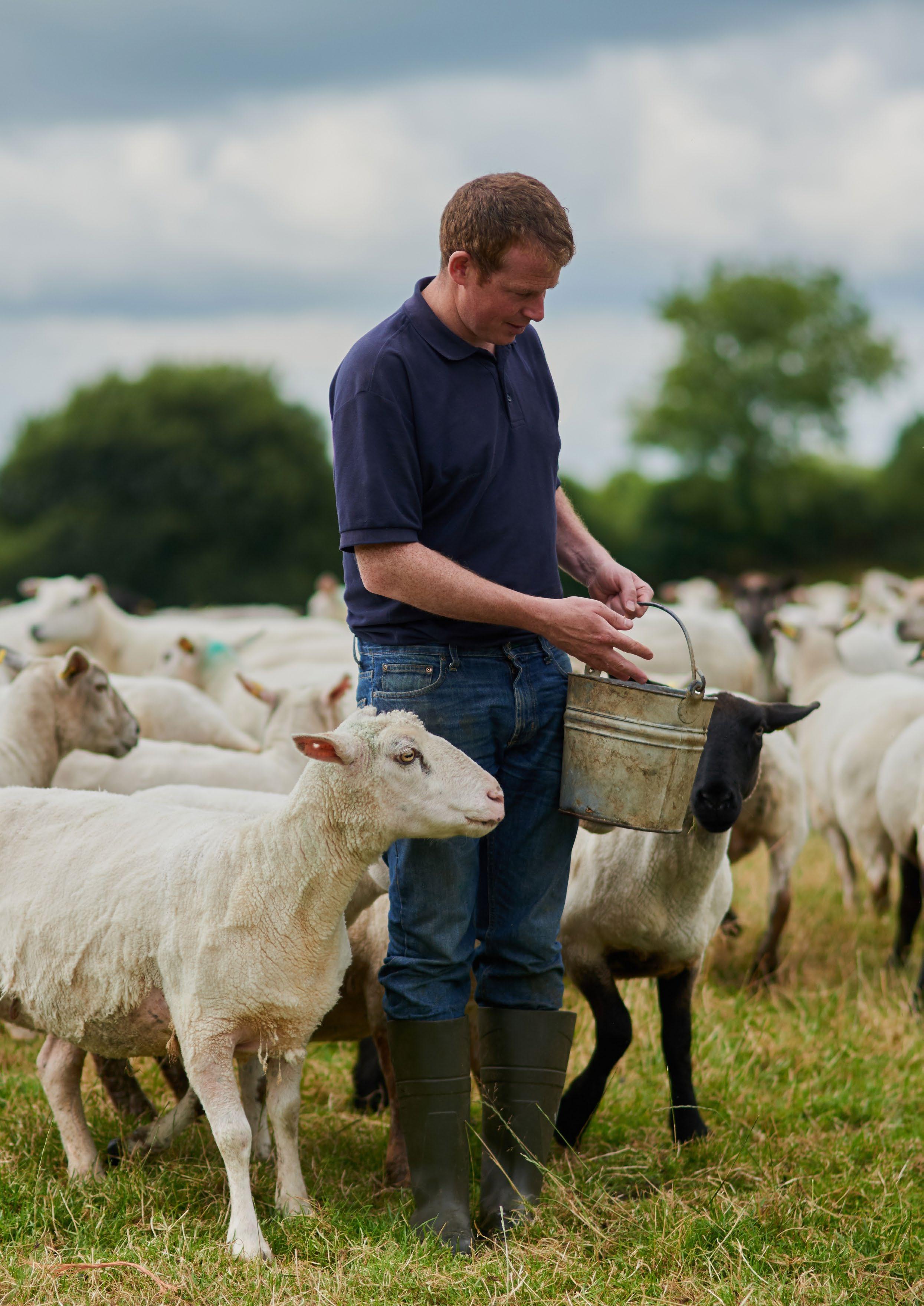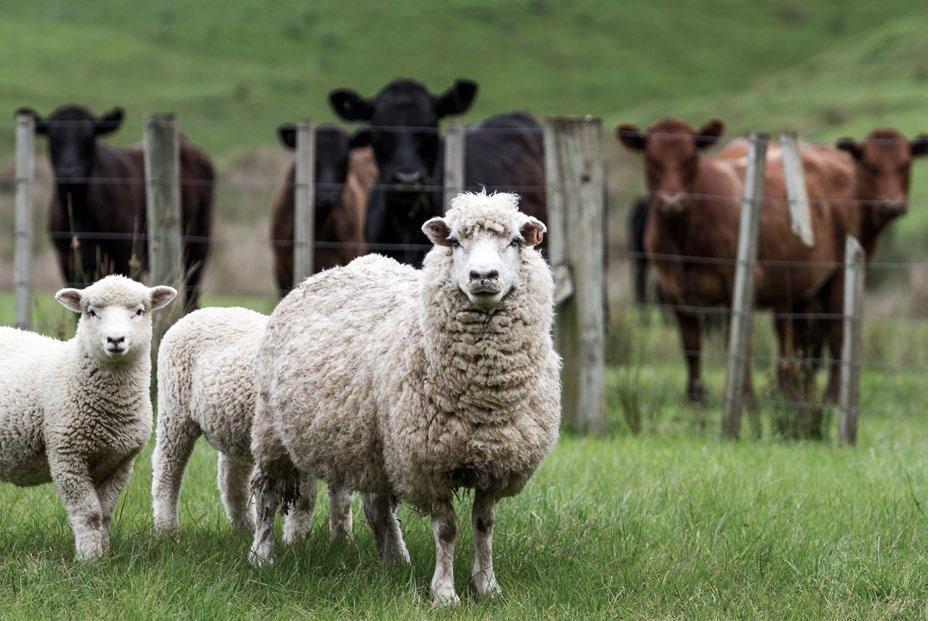Ethical Sourcing
At Fibre by Auskin, ethical sourcing is deeply ingrained in the fabric of our company


At Fibre by Auskin, ethical sourcing is deeply ingrained in the fabric of our company

At Fibre by Auskin, ethical sourcing is deeply ingrained in the fabric of our company. We consider it fundamental to our business and it is as important to us as the exceptional quality of our beautiful products. As a global company, we understand that true beauty goes beyond aesthetics; it involves compassion and responsibility towards the environment and the welfare of animals. That's why we go above and beyond to ensure that every step of our supply chain reflects our genuine commitment to ethical practices.



The majority of our sheepskins come from the breathtaking landscapes of New Zealand, a country renowned for its commitment to ethical sourcing practices and reducing its carbon footprint. We are proud to source our sheepskins from this remarkable country, as it aligns perfectly with our values and the high standards we uphold.
The process of obtaining our sheepskins is carefully managed to maintain responsible pastoral farming practices. We do not select our sheepskins from the field; rather, all of our purchases are a by-product of the food industry, similar to the cowhide leather used in shoes, garments, and furniture. This means that the raw skins collected originate from farmers who raise sheep for meat rather than their skins. The value of the sheep lies in its meat, with only a small portion attributed to the sheepskin.
New Zealand’s Animal Welfare Act strictly prohibits mulesing. We will never purchase raw material that has been subjected to mulesing. New Zealand sheep farmers are regulated by strict environmental codes like the Asure Quality standard, which demonstrates leadership in animal welfare. We are proud to source our sheepskins from New Zealand due to a number of factors:
• New Zealand boasts a benign natural environment that lends itself perfectly to pastoral farming practices.
• The country has implemented comprehensive regulations governing animal welfare, and the government takes active measures to enforce these regulations.
• There is a genuine commitment to showcasing New Zealand meat as ethically sourced to international consumers.
• New Zealand has a vibrant animal rights sector that contributes to
upholding ethical standards and advocates for animal welfare. This active involvement illustrates the nation's genuine concern for the wellbeing of animals.
• New Zealand is the country that developed and encourages the practise of the Five Domains of animal welfare, which goes above the Five Freedoms of animal welfare. The two contain essentially the same elements, however, the Five Domains have greater focus on the mental state of an animal and acknowledges that welfare can be both positive and negative.

We are dedicated to working with farms that prioritise sustainable farming practices. These practices have been passed down through generations of woolgrowers, reflecting a deep understanding and respect for the land and the animals. In New Zealand, the agricultural industry follows the intuitive wisdom of their ancestors, ensuring that sheep are raised in an environment that allows them to thrive naturally.
One of the notable aspects of pastoral farming in New Zealand is that it avoids factory farming methods. The sheep enjoy a grass-fed diet and have the freedom to roam outside in their natural habitat throughout the year. This is made possible by the country's cool to warm temperate climate, which supports the sheep's well-being without the need for intensive chemical regimes or processed supplementary feeding. The result is sheep live in harmony with nature, providing us with sheepskins that embody the true essence of sustainability.
In New Zealand, stringent regulations are in place to protect the well-being of animals. The Animal Welfare Act of 1999, updated in 2015, sets clear expectations for the care and treatment of animals. This legislation outlines the responsibilities of animal owners and those in charge of animals, ensuring that their physical, health, and behavioural needs are met.
To support the Animal Welfare Act, New Zealand established specific regulations and animal welfare codes. These regulations leave no room for compromise, while the welfare codes establish minimum standards and promote best practices for animals. These codes play a crucial role in continuously improving animal welfare across the country, ensuring that animals are treated with the respect and compassion they deserve.
The Ministry of Primary Industries (MPI) in New Zealand is at the forefront of managing, facilitating, and enforcing animal welfare policies and practices. The MPI works in collaboration with two independent statutory bodies: the National Animal Welfare Advisory Committee and the National Animal Ethics Advisory Committee. These bodies provide valuable support and advice on animal welfare matters, ensuring that ethical standards are upheld throughout the industry.
In addition to government oversight, MPI Verification Services plays a crucial role in ensuring animal welfare. They run an on-farm verification program, which acts as a thirdparty certification process, providing assurance that farmers are meeting the animal welfare standards required by law. This program helps maintain transparency and accountability within the industry, safeguarding the well-being of animals.
New Zealand's commitment to ethical sourcing goes beyond government regulations. Private initiatives and accreditation programs further raise the standards for animal welfare and promote compliance with ethical practices. These initiatives encourage continuous improvement and innovation, ensuring that the industry is always striving to do better for the animals.
New Zealand has a vibrant animal rights sector that passionately advocates for the welfare of animals. Animal rights organisations work tirelessly to hold corporations, farmers, and regulatory bodies accountable. Through their advocacy and campaigns, they contribute to the ongoing improvement of animal welfare standards and ensure that the ethical treatment of animals remains a priority for the industry.
At Fibre by Auskin, we also work closely with Australian suppliers who share our commitment to animal welfare and ethical sourcing practices. Australian sheep are known for their high-quality wool, and we are proud to collaborate with farmers who prioritise the welfare of their animals.
Similar to New Zealand, Australia has robust regulations in place to ensure the wellbeing of animals. The industry adheres to strict welfare guidelines and embraces the Five Domains model, which focuses on ensuring that animals experience good nutrition, physical and thermal comfort, mental well-being, and the ability to express natural behaviours.

Our Australian partners have set ambitious sustainability goals, aiming to reduce emissions and achieve zero food waste to landfill. They are actively working towards surpassing net zero emissions by 2050. This commitment to sustainability extends beyond animal welfare and encompasses environmental stewardship.
Through circular thinking and collaboration across the value chain, our Australian partners are driving positive change. They are continuously exploring innovative solutions to minimise the environmental impact of their operations, ensuring that their practices align with our shared goal of leaving a softer environmental footprint.
California (USA) recently banned the sale and manufacture of fur. This law specifically excludes sheepskin and cowhide from the legislation. The ban states that "Fur product" does not include deerskin, cowhide, sheepskin, or goatskin with hair attached. Sheepskin, being tanned wool on leather, is not considered fur under the California Fur Ban. Animals farmed solely for their fur, like sable, mink, and chinchilla, are banned.

Sheepskin
Renewable and sustainable resource
Biodegradable
Comfort and durability
Hypoallergenic
Environmentally-friendly drying
By-product of the food industry
Derived from synthetic materials
Slow decomposition
Microplastic pollution from recycling
Limited durability
Potential environmental impact during production

When you choose Fibre by Auskin, you can trust that every sheepskin we offer is sourced with the utmost care and consideration for animal welfare. Our commitment to ethical sourcing is genuine and authentic. We strive to ensure that our products, not only provide comfort and beauty, but also reflect our dedication to sustainability and compassion for animals.
When you purchase a Fibre by Auskin product, you can trust that it has been sourced ethically and created for you with a conscious respect for animal welfare. FOR
https://fibrebyauskin.com/sustainability
